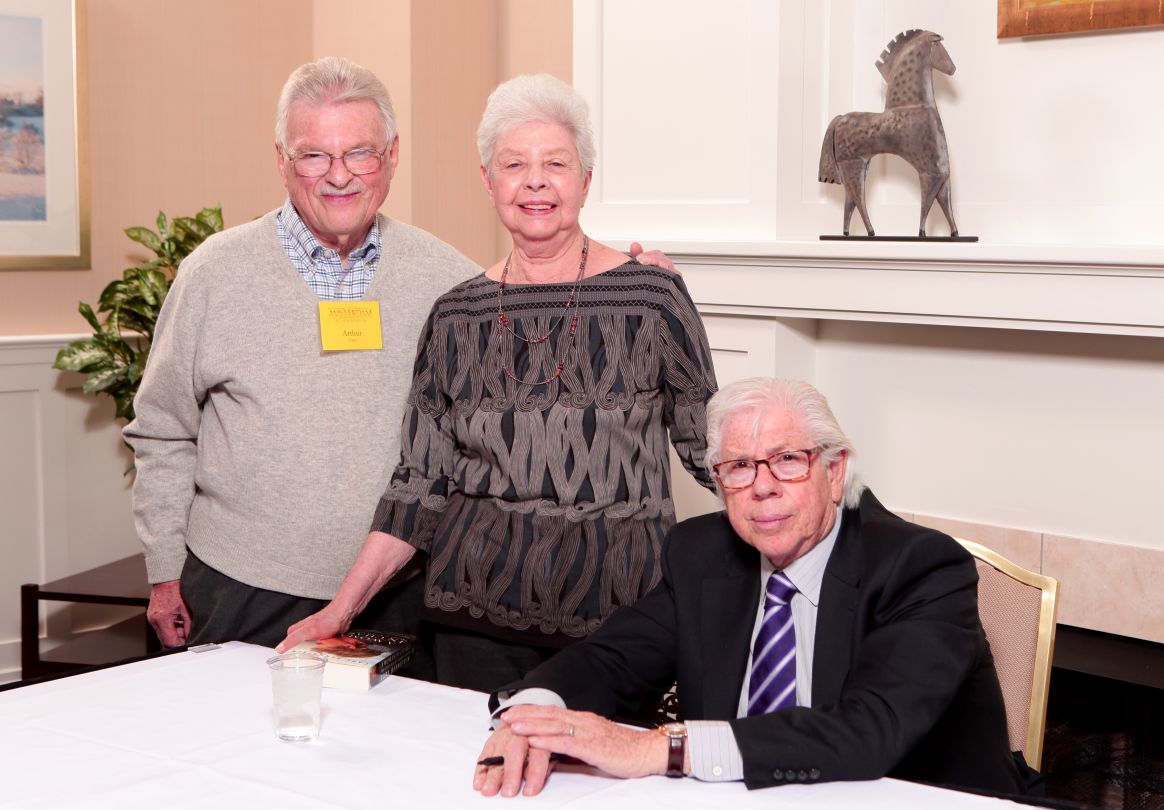More than 40 years after he co-piloted a Washington Post investigation of a break-in of the Democratic National Committee headquarters at the Watergate office complex that ended with the resignation of President Richard Nixon, Carl Bernstein has seen politics and journalism dance in ways that make him concerned for the future of the United States.
For one, he told about 120 guests at the Amsterdam at Harborside senior living facility in Port Washington on Tuesday, money and outside interests have hounded Washington like seemingly never before, culminating in stubborn infighting and dysfunction between the two major parties throughout the federal government.
But even more danger is lurking within a media that Bernstein said has primarily sought to capitalize on that political polarization by catering to news consumers who seek validation in their devout political beliefs, no matter how misinformed.
“You can’t blame this all on the politicians,” said Bernstein, 71, who posed for photographs and signed copies of three of his books for attendees. “…Too often, people are looking only for their own ideology, not the truth. In this atmosphere, the truth is utterly subjugated.”
Bernstein, who resides in Manhattan and Southampton, began his career as a copy boy for the former Washington Star, where he cultivated the reporting skills that won him and Bob Woodward a Pulitzer Prize for their Watergate investigation in 1973.
Today, Bernstein teaches journalism and history at the State University of New York at Stony Brook and has various writing projects in the works, but while he said the older generations hold a great deal of political power, he acknowledged his optimism that Millennials, fed up with an inept Washington and mindless media, have the wherewithal to initiate profound change and restore the common good.
But even his hope is not without some doubt, Bernstein said, as America’s youth have not faced national required service time like previous generations, thus removing the care with which decisions of war were once made and creating a general indifference toward participation in government.
“If you think Hillary Clinton would have voted for the Iraq war if Chelsea Clinton would have had to go to Iraq, I don’t think she would have,” he said. “I’m skeptical.”
As for young journalists, Bernstein told Blank Slate Media in an interview following his hour-plus-long talk and question-and-answer session that modern reporters do not spend enough time listening to their subjects and letting a story develop as they uncover information.
“Ask a lot of questions and don’t let people go wherever they want in the conversation,” he said. “It’s not on them to tell the truth, to find that best obtainable version of the truth. But I think people, if given the chance, want to contribute to the common good and tell the truth.”



